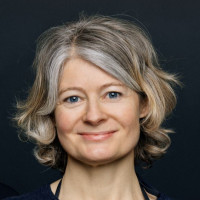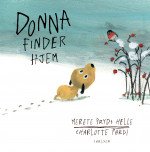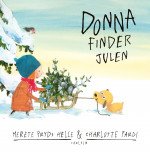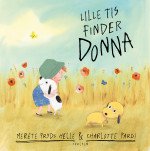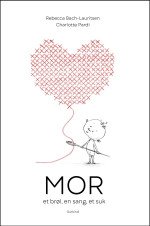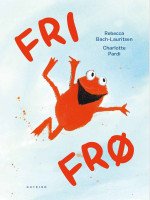Synopsis
In this book, you'll meet seven of our great European philosophers... as children: Søren Kierkegaard, Immanuel Kant, Friedrich Nietzsche, Jean-Paul Sartre, René Descartes, Simone de Beauvoir and Niccolò Machiavelli.
And in seven ‘fictional’ stories, built around each philosopher's childhood and youth, we see how their pondering, philosophising - and respective lead idea - emerge.
There's plenty of food for thought - and many fun conversations between children and adults. And an inspiring theme for a teaching programme for children in grades 0-4.
Reviews
"Charlotte Pardi's drawings really make the comedy in the situations and the philosophers' inner anguish crystal clear (...) The fact that the philosophers are children and not aging adults gives the whole book and its content an enviable lightness. (...) ‘Fantastic Philosophers’ is probably more of a prelude to a dialogue about some of life's difficult questions than an actual introduction to the philosophers' lives and overall meaning. That doesn't matter, because it makes the book inspiring. But you should probably allow extra time if you're using the book for bedtime reading!" – (Kristeligt Dagblad (Danish daily newspaper))
"A delightful and humorous philosophy book for children about seven great thinkers and their childhood. (...) proof that non-fiction can be communicated to children if you understand how to tell an engaging and vivid story. The use of humour is additionally a brilliant approach, also in terms of the visuals." – (Litteratursiden)
"It's a good reading experience. The tone is very happy and humorous. You learn more about philosophy and think philosophical thoughts yourself while reading a fun book. A book you can read on your own, but also with others, learning more about life together." – (Lekørudtalelse (Library review)
Personal note from the author
‘Children are fantastic philosophers, and I spend a lot of time with my daughter talking about all the wonderful things that happen in the world, about life and death, right and wrong - generally just what's up and down in the world. The beauty of talking philosophically with children is that they are not as stuck in their thoughts as we adults have often become over the years. With this book, I hope to help children and their grown-ups explore in a fun way all the big questions that rumble around inside all of our heads. Who are we? What are we doing in this world? What can we do and what can't we do? And why is this so? Philosophy is for everyone, we all philosophise all the time, young and old, and we need to do it a lot more!’


